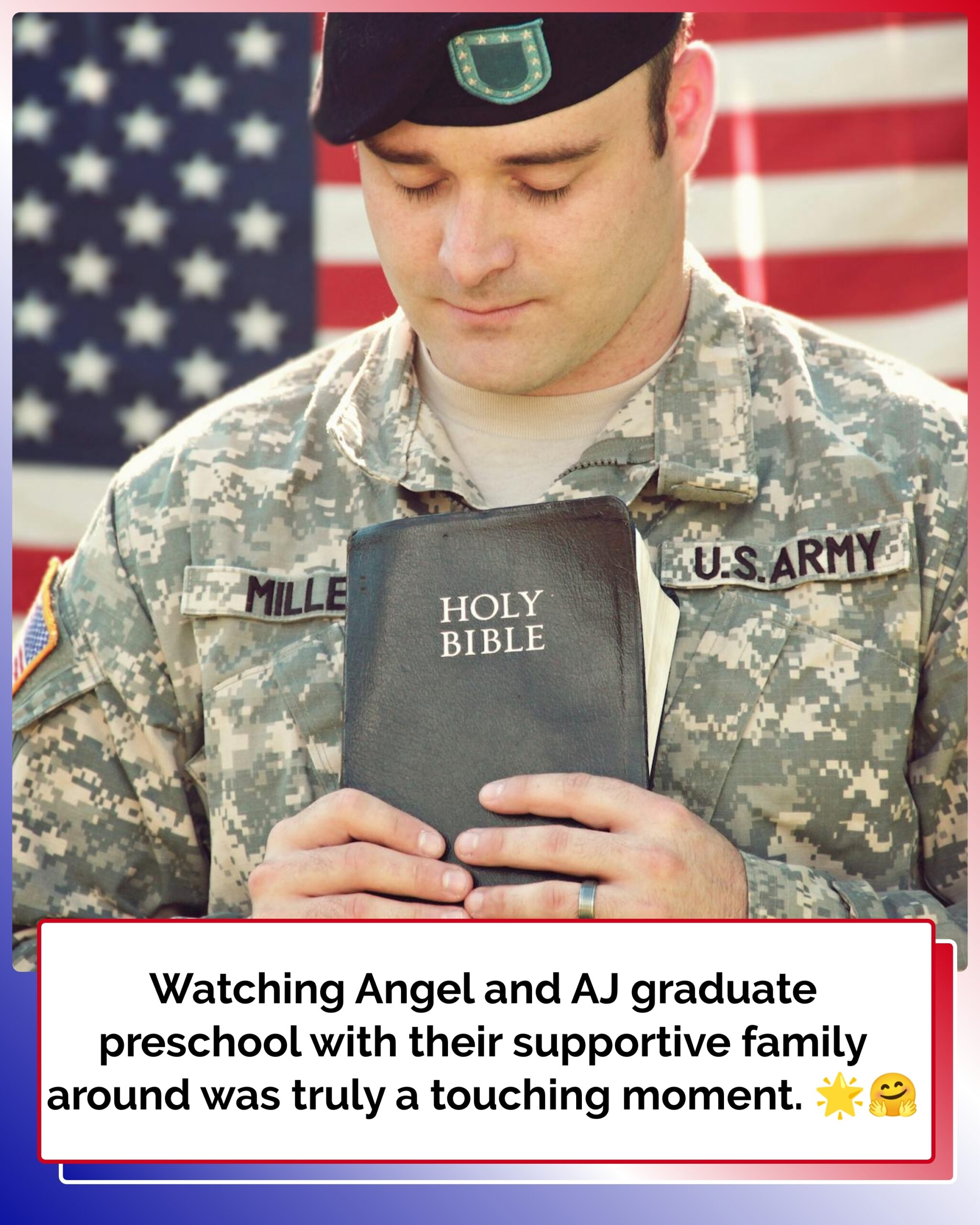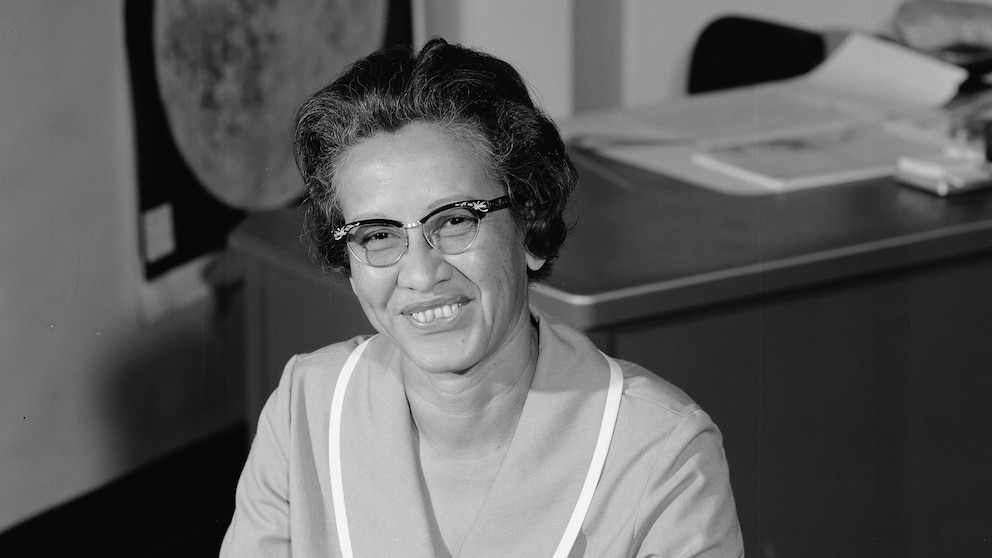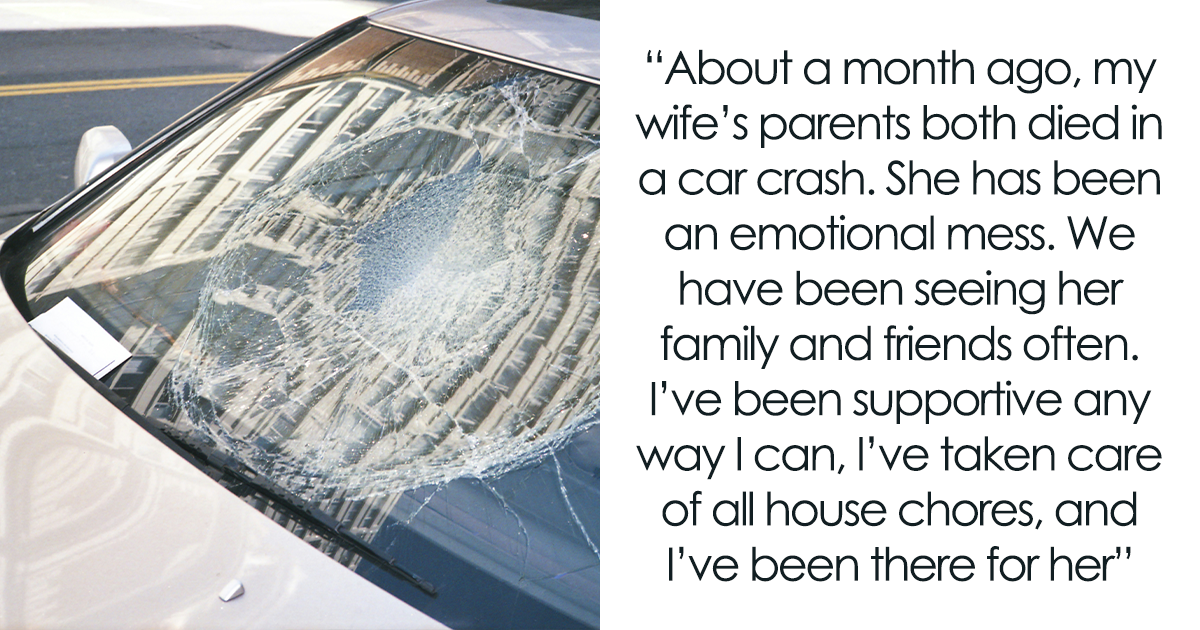Meet Michael, my 22-year-old who, until recently, I thought had outgrown his teenage turbulence. Foolish me, right? Turns out, stormy weather was right around the corner, and I didn’t even need a weather vane to know it was coming.
Picture this: while I’m busy whipping up lunch in the kitchen, Michael storms in with a face so twisted, it could scare a ghost.
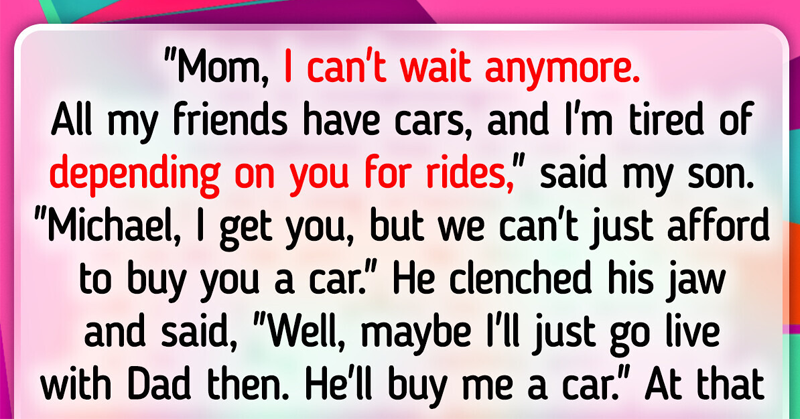
Michael announces, “Mom, we need to talk,” with a tone that spells out Armageddon.
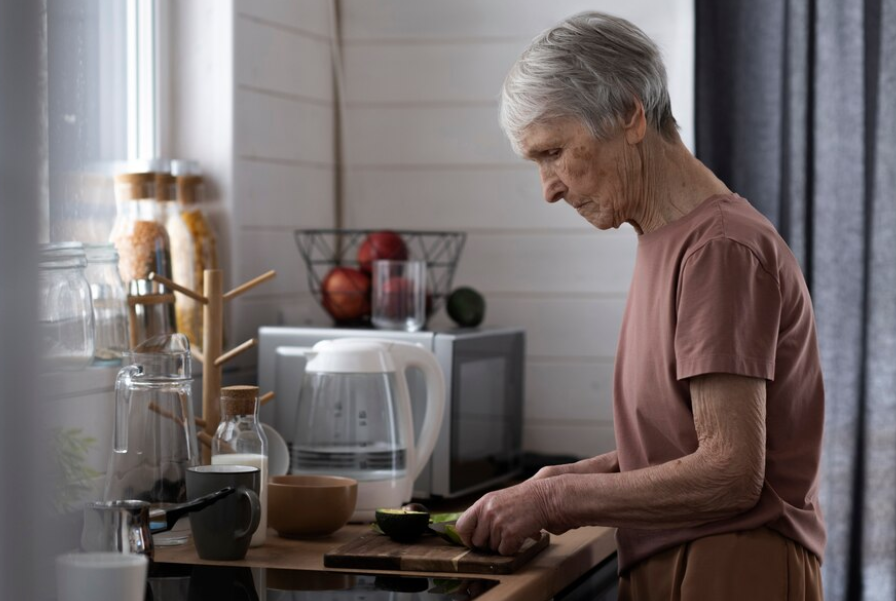
“Sure, what’s on your mind, honey?” I respond, thinking maybe it’s about his grades or career plans.
He leans against the counter, arms folded. “I need a car.”
Needless to say, I was flummoxed. “A car? What happened to your part-time job? You were saving up for one.”
With a sigh loud enough to rattle the stove, he retorts, “I know, but it’s taking forever to save up, and I really need it now.”
So, I try to explain as patiently as a monk, “Michael, cars are expensive. You know that. Besides, you have a job, you can save up a bit more and—”
Interrupting me with all the impatience of youth, he blurts out, “No, Mom, I can’t wait anymore. All my friends have cars, and I’m tired of depending on you for rides or taking the bus. I need my freedom.”
Feeling the frustration simmering, I add, “Michael, I understand, but we can’t just afford to buy you a car out of the blue. It’s not that simple.”
And then, boom! He drops the bomb: “Well, maybe I’ll just go live with Dad then. He’ll buy me a car.”
His ultimatum hit me like a rogue wave.

David, my ex-husband, was always the ‘fun’ parent. Couldn’t believe Michael played that card.
“Michael, you can’t just threaten to leave because you’re not getting what you want,” I said, trying to keep my voice calm (and not hurl a tomato at him).
“Why not? Dad would be happy to have me. He always spoils me,” he countered, now all defiance and bravado.
I took a calming breath, “This isn’t about your dad. It’s about responsibility. You’re an adult now, and part of being an adult is making responsible decisions.”
Rolling his eyes so hard I almost heard them click, he said, “Yeah, responsible decisions like being the only one among my friends without a car.”
The conversation ended, but Michael’s frustration lingered in the air like an unresolved plot twist.

Days were filled with silent treatments, like we were starring in an indie family drama. Arguments aplenty whenever the topic popped up again.
One evening, during yet another cold war over dinner, I tentatively tried again.
“Michael, can we talk about the car situation again?” I asked, cautiously.
Another sigh fit for the Grammy’s, “What’s there to talk about, Mom? You still won’t buy me one.”
“It’s not just about buying you a car, Michael. It’s about how you’re handling this whole situation,” I explained, teetering between frustration and sadness.
Defensively, he snapped, “What do you mean?”
“I mean, threatening to leave if you don’t get what you want is not how adults handle things. It’s not fair to manipulate me like that,” I said.
He shrugged, “I’m just tired of waiting. Dad would understand.”
“Dad isn’t here, Michael. And buying you a car won’t solve everything. What about the expenses that come with it? Insurance, maintenance…” I trailed off, hoping he’d get it.
A moment of silence before he dramatically pushed his plate away, “Forget it, Mom. You’ll never understand.”
As he stormed off, I was left wondering if I was too harsh or failing as a parent somehow.
Days turned into weeks, the tension thick enough to cut with a knife. Michael spent less time at home, more out with friends or cloistered in his room.
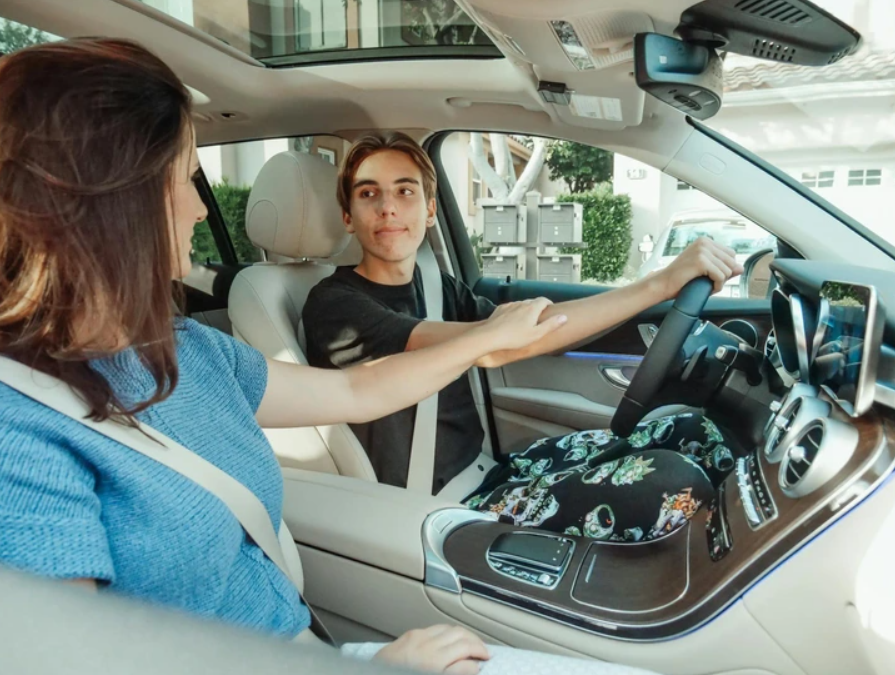
One Saturday morning, I found a note on the kitchen counter:
“Mom, I’m going to stay with Dad for a while. I can’t stand being here anymore. Maybe he’ll understand me better.”
My heart did a nosedive. I knew this day might come, but not like this.
I called Michael immediately, but his phone went straight to voicemail. Panic ensued as I scrambled to remember David’s address. Post-divorce contact was zilch.
With some detective work, I found David’s number and dialed, fingers trembling.
“Hello?” David’s voice sounded surprised.
Trying not to spill my sheer panic, I said, “David, it’s Sarah. Is Michael with you?”
A moment of tense silence.
“Sarah, what’s going on? Michael isn’t here.”
Explosion of panic in my head. “He left a note saying he’s coming to stay with you. He’s upset because I won’t buy him a car.”
David sighed, “I had a feeling something like this might happen. If he shows up, I’ll talk to him, but he can’t just run away from his problems.”
Days passed without a word from Michael. Calls and texts went unanswered. Worry consumed me.
Then, one evening, a knock at the door. My heart nearly burst as I opened it to find Michael, looking worn out, with a duffle bag slung over his shoulder.
“Mom, can we talk?” he asked softly.
Relief washed over me as I pulled him into a hug, “Of course, come in.”
We sat in the living room and Michael, voice shaky, said, “I’m sorry, Mom. I was being stupid.” I squeezed his hand, “It’s okay, Michael. I’m just glad you’re back.”
Eyes down, he continued, “Running away wasn’t the solution. Dad didn’t even know what I was talking about when I arrived.” I nodded, mixed with sadness and relief, “I’m just glad you’re safe. But we need to talk about what happened.”
Additionally, we talked. About responsibility, communication, the challenges of adulthood. Not an easy conversation, but a necessary one. In the end, Michael understood that a car wasn’t just about freedom; it came with responsibilities. And I understood that communication was key, even when it was tough.
Since then, we’ve been rebuilding our relationship, stronger and more open, knowing challenges will come but we’ll face them together.


